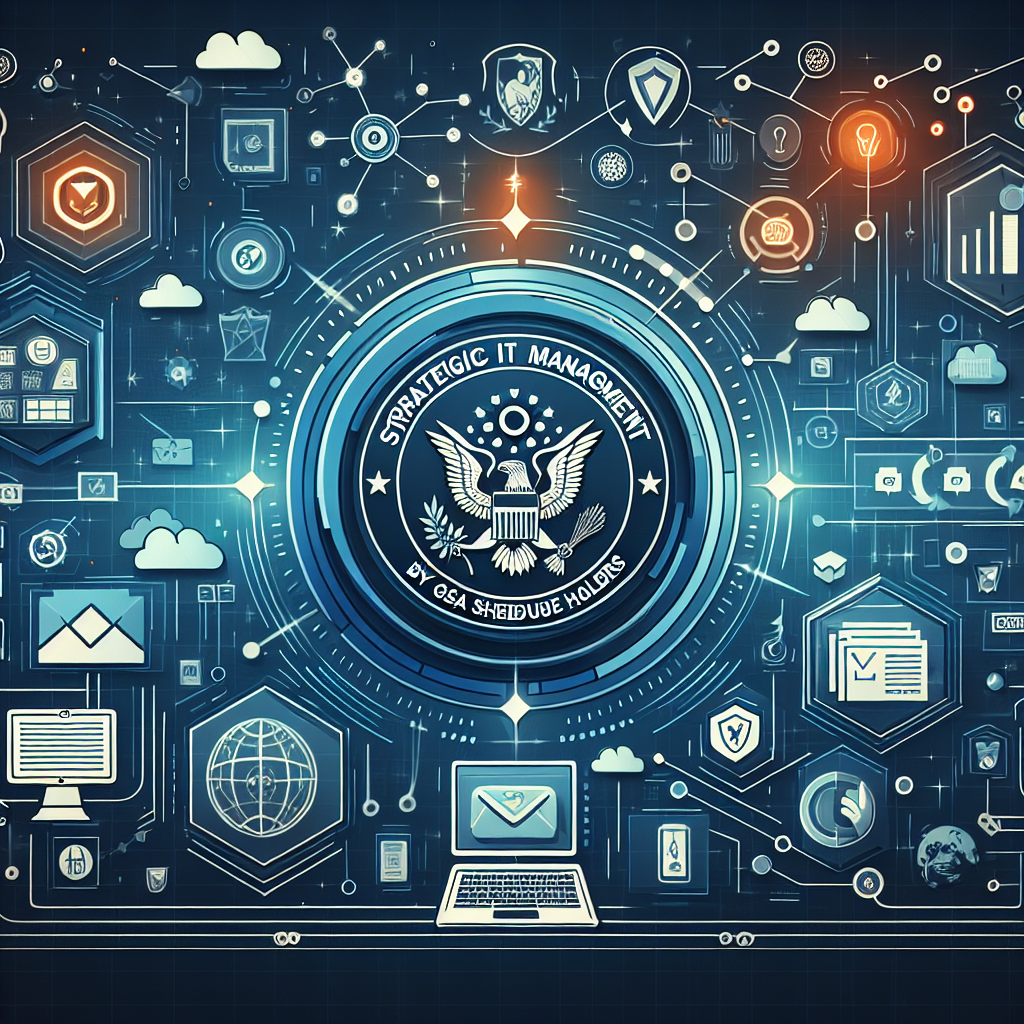
Strategic IT Management by GSA Schedule Holders
Strategic IT management is a crucial aspect of any business, and it is especially important for GSA schedule holders. GSA schedule holders are companies that have been awarded contracts by the General Services Administration (GSA) to provide goods and services to federal agencies. These companies need to be able to effectively manage their IT systems in order to meet the requirements of their contracts and provide top-notch service to their clients.
One of the key aspects of strategic IT management for GSA schedule holders is ensuring that their IT systems are secure and compliant with government regulations. Federal agencies have strict requirements when it comes to data security and privacy, and it is essential that GSA schedule holders have the necessary measures in place to protect sensitive information. This includes implementing strong authentication protocols, encryption technologies, and regular security audits to identify and address any vulnerabilities.
Another important aspect of strategic IT management for GSA schedule holders is ensuring that their systems are scalable and adaptable to meet the evolving needs of their clients. Federal agencies often have complex and changing requirements, and GSA schedule holders need to be able to quickly and effectively adapt their IT systems to meet these demands. This may involve implementing new technologies, expanding infrastructure, or integrating additional services to support their clients’ missions.
Furthermore, strategic IT management for GSA schedule holders should also focus on optimizing efficiency and reducing costs. This can be achieved through the implementation of automation tools, cloud computing services, and other technologies that streamline processes and eliminate unnecessary expenses. By continuously assessing and optimizing their IT systems, GSA schedule holders can enhance their operational efficiency and stay competitive in the federal marketplace.
In conclusion, strategic IT management is essential for GSA schedule holders to succeed in the highly competitive federal marketplace. By prioritizing security, scalability, adaptability, efficiency, and cost-effectiveness in their IT systems, GSA schedule holders can better meet the needs of their clients, comply with government regulations, and maintain a competitive edge in the market.
The acquisition of federal contracts is a significant element in the strategic planning and growth of many businesses. When such contracts form part of their strategies, technology becomes an essential tool for the success of their operations. Information Technology (IT) strategies are particularly crucial for General Services Administration (GSA) Schedule holders. Such businesses need to maintain a competitive edge while aligning their IT-determined operational effectiveness with federal requirements.
To maximize the benefits of their awarded GSA Schedules, these organizations often adopt strategic IT management techniques. Its utility lies in integrating business goals with technology initiatives to optimize performance. It encompasses the application of tools, methodologies, and IT platforms to support the strategic objectives of GSA Schedule holders.
The strategic management of IT provides an end-to-end view of the organization’s business model and enables managers to assess the impact of technology on their operations. This broad perspective aids in integrating IT and business aims, resulted in the alignment of IT strategy and business strategy. In the context of GSA Schedule holders, appropriate mapping of IT capacities with GSA contract requirements facilitates effective contract management and execution.
One of the core strategic IT management approaches for GSA Schedule holders is the implementation of enterprise resource planning (ERP) systems. By integrating various business processes and streamlining the flow of information across the organization, these systems enhance operational efficiency. ERP aids in managing and fulfilling GSA contracts, providing real-time data, improving decision-making, and enabling cost-effective resource allocation.
Another vital component of strategic IT management pertains to cybersecurity. With increasing reliance on digital platforms, GSA Schedule holders must enhance their cybersecurity strategies to protect their sensitive data, as well as that of their federal partners. Advanced cybersecurity measures also ensure compliance with federal regulations concerning data protection, which are integral to the successful execution of GSA contracts.
Cloud computing further enhances strategic IT management efforts by offering scalability, flexibility and cost savings. Cloud-based solutions provide GSA Schedule holders with the agility to keep pace with changing business environments and regulatory requirements. They also promote collaboration and enhanced accessibility, thereby facilitating smooth communication and coordination between the organization and federal agencies.
IT service management (ITSM) is another approach GSA Schedule holders can adopt to align their IT services with their business needs. ITSM practices focus on delivering and managing IT services that support an organization’s business processes. These involve processes such as IT service delivery, service level management, and capacity management, among others.
Strategic IT management by GSA Schedule holders is paramount for the effective utilization of their federal contracts. Through robust IT strategies, these organizations can not only fulfill their contractual obligations systematically but also gain a strategic edge over competitors. The amalgamation of technology strategy with business goals thus plays a significant role in their growth and success. The present scenario necessitates the diligent implementation of strategic IT management more than ever, given the rapid advancements in digital technologies and increasing data security concerns.



